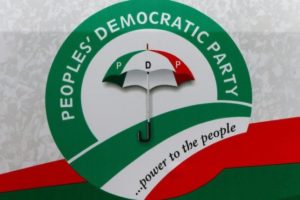President Tinubu and various state governors are contemplating the introduction of state police forces. This move comes amidst escalating security challenges across the nation, with calls for more localized and efficient security apparatus to tackle crime and insurgency effectively. The proposal, if implemented, would mark a departure from the current centralized policing system in Nigeria, potentially granting states more autonomy in safeguarding their territories.
President Tinubu, , has been vocal about the need for state police, arguing that decentralizing law enforcement would enable more targeted and responsive security measures tailored to local needs. State governors, facing mounting pressure to address insecurity within their jurisdictions, are also reportedly in favor of the proposal, viewing it as a proactive step towards curbing crime and enhancing public safety. However, the feasibility and implications of such a significant policy shift remain subject to deliberation and scrutiny, with concerns regarding potential abuse of power and the need for adequate training and oversight of state police forces.
President Tinubu seek for Collaborative Efforts to Alleviate Food Crisis
Amidst growing concerns over food scarcity and rising commodity prices, president Tinubu have directed collaborative efforts to address hoarding and ensure food security nationwide. The National Security Adviser, Director General of State Services, and Inspector General of Police have been tasked with coordinating with state governors to tackle hoarding practices that exacerbate the food crisis. This directive underscores the government’s commitment to stabilizing food supply chains and mitigating the impact of inflation on consumers.
Recognizing the critical role of agriculture in addressing food shortages, president Tinubu have emphasized the importance of investing in the sector to boost domestic production and reduce reliance on food imports. The decision to halt food importation reflects a strategic shift towards promoting self-sufficiency and positioning Nigeria as a net exporter of agricultural products. However, achieving food security requires a multifaceted approach that addresses systemic challenges such as infrastructure limitations, climate change, and access to credit for small holder farmers. Collaborative efforts between the federal and state governments, alongside private sector stakeholders, will be essential in implementing sustainable solutions to the ongoing food crisis.
Implications for National Security and Economic Stability
The proposed implementation of state police represents a paradigm shift in Nigeria’s security architecture, potentially reshaping the dynamics of law enforcement and governance at the state level. While proponents argue that localized policing could lead to more effective crime prevention and community engagement, skeptics raise concerns about the potential for politicization and abuse of power by state authorities. Balancing the need for enhanced security with safeguards against potential abuses will be crucial in navigating the complexities of decentralizing law enforcement.
Furthermore, the concerted efforts to address the food crisis highlight the interconnectedness of security, economic stability, and social welfare in Nigeria. Ensuring food security not only mitigates the risk of civil unrest but also strengthens the resilience of the economy against external shocks. Sustainable agricultural development, coupled with policies to support small holder farmers and improve market efficiency, will be essential in achieving long-term food security and fostering inclusive growth. As the president Tinubu and other stakeholders work towards implementing these measures, the broader implications for national security and economic stability will require careful monitoring and adaptation to address evolving challenges effectively.
State Governors Under Scrutiny for Unpaid Salaries: Potential Impact of State Police
In a move towards greater transparency and accountability, state police could soon become a reality in Nigeria, a decision that could potentially expose discrepancies in salary payments among state governors. The proposal comes at a time when many governors are facing scrutiny for owing salaries to state workers, revealing a pressing need for increased oversight.
One of the significant implications of implementing state police is the potential for governors to be held accountable for various issues, including the timely payment of salaries and addressing security concerns such as rising cases of kidnapping. Citizens now have the opportunity to demand answers from their governors, especially regarding their performance in ensuring the safety and security of their states.
However, concerns have been raised regarding the feasibility of introducing state police, particularly concerning funding and the possibility of misuse for political purposes. With many states heavily reliant on federal allocations and struggling to meet their current expenditures, adding the responsibility of funding and managing state police forces could exacerbate existing financial challenges. Moreover, there are fears that state police could be weaponized to oppress political opponents and manipulate election outcomes, highlighting the need for careful consideration and potential reforms within the current system.
President Tinubu Advocates for Self-Sufficiency Amidst Economic Challenges
President Tinubu has reiterated the importance of prioritizing self-sufficiency in Nigeria’s economic policies, particularly concerning the production and consumption of essential goods such as rice. Despite facing challenges in meeting local demand due to supply shortfalls, President Tinubu remains steadfast in his commitment to promoting domestic production over reliance on imports.
President Tinubu stance reflects a broader push towards bolstering Nigeria’s agricultural sector and reducing dependence on foreign imports. By encouraging states to maximize their natural resources and invest in local production, President Tinubu aims to foster economic growth and create opportunities for job creation within the country.
While the idea of self-sufficiency is commendable, critics argue that achieving this goal requires a multifaceted approach, including addressing infrastructural limitations, enhancing agricultural productivity, and implementing supportive policies to incentivize local production. Additionally, there is a recognition of the immediate need to alleviate supply shortfalls, which may necessitate temporary import measures until local production capacities are fully optimized.
President Tinubu’s advocacy for self-sufficiency underscores the importance of promoting domestic production and reducing reliance on imports. However, achieving this objective requires comprehensive strategies and investments to overcome existing challenges and ensure sustainable economic growth for Nigeria.
Table of Contents
Discover more from OGM News NG
Subscribe to get the latest posts sent to your email.













